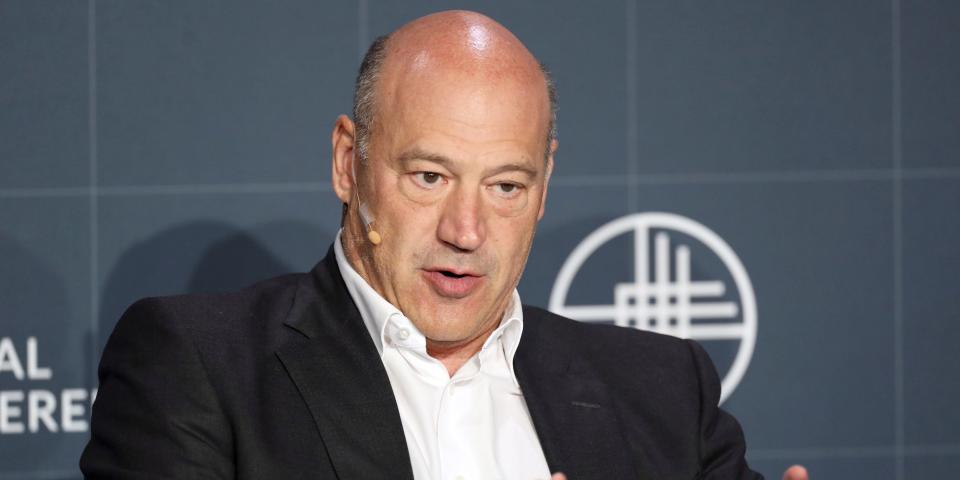The Fed has outsourced monetary policy and lost control of the economy, former White House advisor says

The Federal Reserve is outsourcing monetary policy, former White House adviser Gary Cohn said.
It's betting that tighter lending in the banking sector will act as a brake on the economy, he told CNBC.
But this may lead to a recession, as businesses are unable to expand without borrowing.
The Federal Reserve has shifted some of the task of slowing the economy to the banking sector, former White House economic advisor Gary Cohn said on Thursday.
The central bank raised rates by a quarter point Wednesday, but Chairman Jerome Powell also acknowledged that if credit tightens across the broader financial system, then the Fed may not have to do as much tightening with its monetary policy.
"We're almost getting to a point right now where he's outsourcing monetary policy," Cohn told CNBC. "He's outsourcing it by saying, 'look ... what I see on deposits leaving these banks, I don't believe they are going to loan money, or as much money, and therefore we're going to see a natural contraction in the economy.'"
The collapse of Silicon Valley Bank has spurred a massive shift in deposits away from small and mid-size banks. Banks are pulling back their lending as they try to preserve capital.
And such financial tightening is equivalent on another 25 basis points of rate hikes or more, Cohn said.
Now the Fed and US banks are essentially slowing the economy because lenders no longer have excess deposits that they can recirculate to borrowers, he added.
Meanwhile, his view on the economy's ability to pull of a soft landing and avoid a recession is dimmer.
"I think it's getting harder. Now that the Fed has lost control, it is more difficult," Cohn said.
When the Fed was slowing the economy by raising rates, a soft landing seemed more achievable, he said. But now that the availability of loans is being taken away, avoiding a recession has become more difficult.
As businesses are unable to borrow the necessary cash to expand, hire, or become more efficient, he said that they become stuck in their current level of production.
Even with the possibility of a recession, Cohn did not think that the Fed was incentivized to cut rates later this year, citing the Fed's dot plot. The projection shows that interest rates may peak at 5.1% in 2023, coming back down to 4.3% next year.
"My view is they want to stay here as long as they can," he said. "The worst mistake they can make is to cut and then have to raise again."
Read the original article on Business Insider

